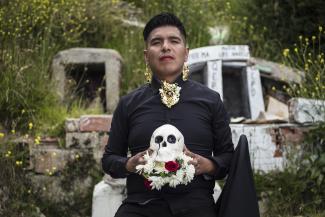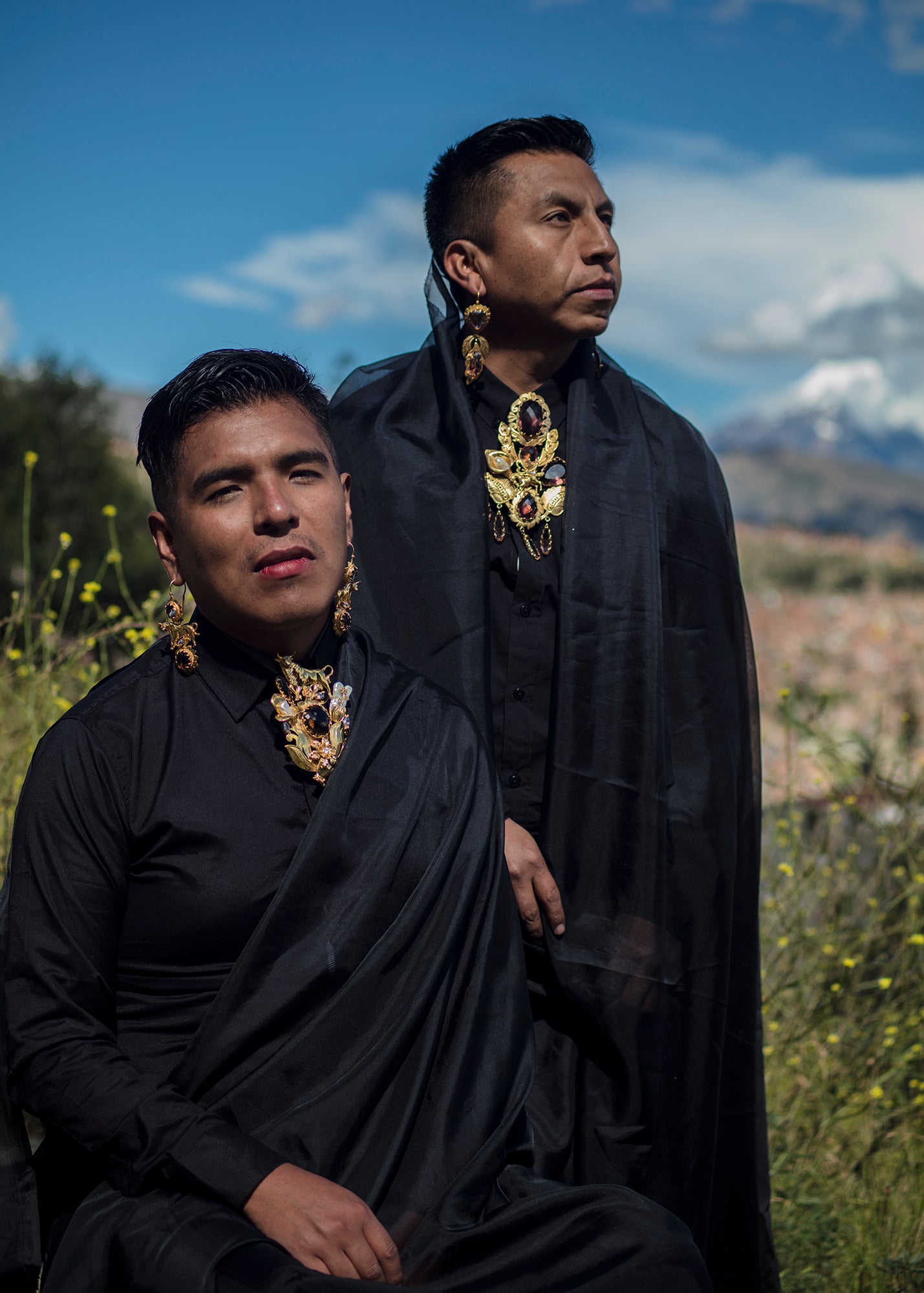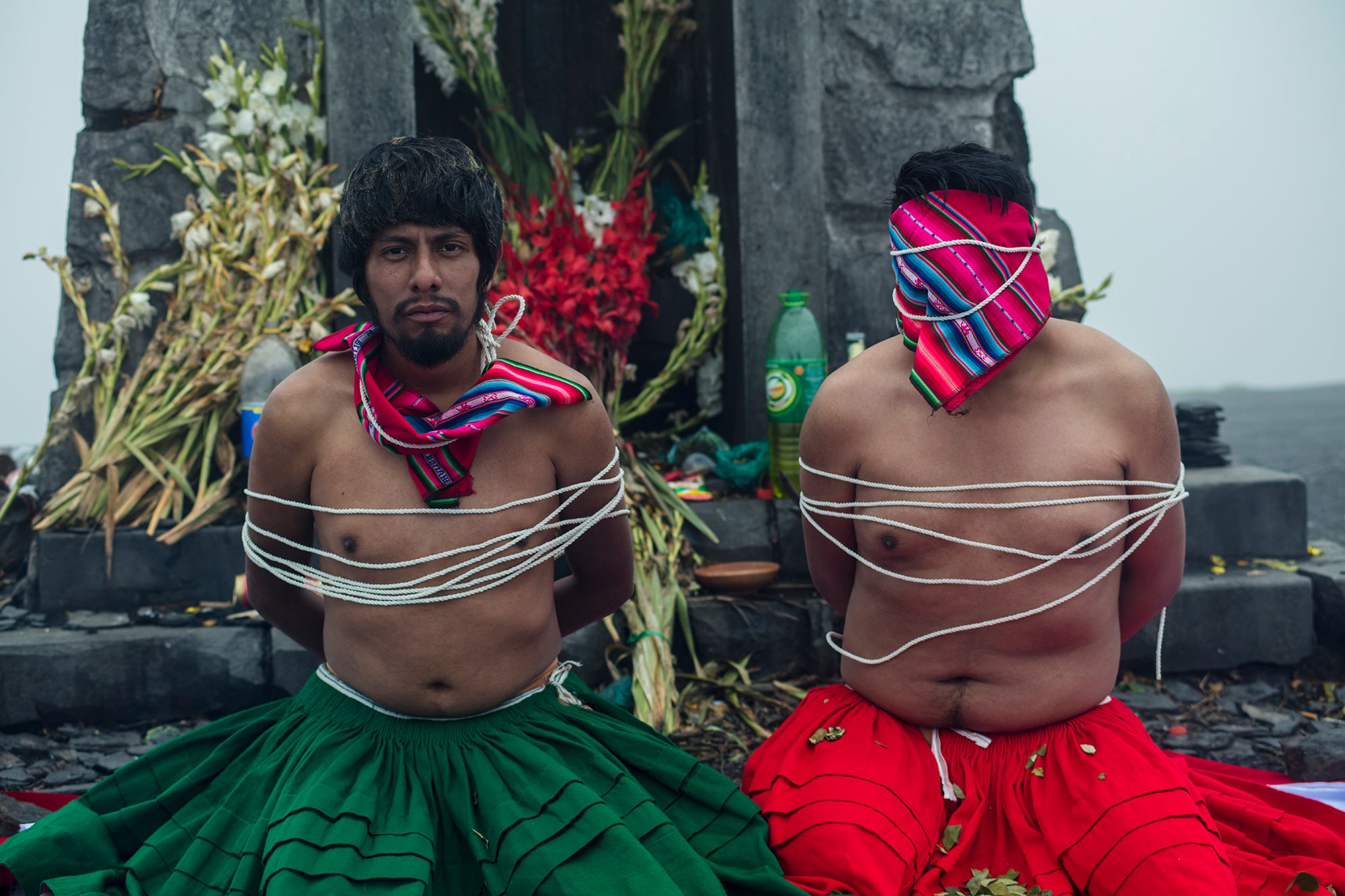
The Maricas Bolivia Movement seeks to promote respect and provide support for Indigenous Transgender women in major cities through radio productions. They also aim to empower their fellow sisters in their identity and foster more inclusive and comprehensive spaces for their personal development.
The Maricas Bolivia Movement began 10 years ago in support of cultural and sexual diversity, starting with the radio program formerly called, “I’m a Marica, So What!” which was composed of people who were proudly and defiantly reclaiming the word Marica—a derogatory term for non-heterosexual, gender diverse folx. At the time, they were using community radio as a space to initiate reflection on the sexual and gender diversity in their communities through the project “The Voice of My Desire,” produced by the Women Creating Collective, an allied organization in La Paz. Today, the program is called MBM.
For the next five years, the Maricas Bolivia Movement broadcast on Radio Deseo, and subsequently they worked at other radio stations and in other public spaces. In addition to raising awareness, the Movement has also become active in defending and promoting the rights and freedoms of self-identifying Maricas in Bolivia.
“We, in contemplating and reflecting on who we are and what place we occupy in this world, have also reflected on our bodies. In doing so we have found that ‘Marica’ was not only an insult that we have been called throughout our lives and needed to be redefined, but also to our Indigenous soul,” said Roberto Condori (Aymara), a member of the Maricas Bolivia Movement.

“Chola Street Intervention,” 2019 performance at La Llama Clandestine Cemetery in La Paz. Produced by Maricas Bolivia Movement. Photo by Hanna Fitche.
The Maricas Bolivia Movement aims to respond to local needs while creating their own meaning as both a movement and an organization. Edgar Soliz (Quechua), another member of the Maricas Bolivia Movement, clarified that the Movement does not represent the 2SLGBTQ+ community and is not affiliated with 2SLGBTQ+ collectives in La Paz or elsewhere in Bolivia. “Our movement is an independent movement, a grassroots community organization that primarily works in media,” Soliz said.
In 2022, the Maricas Bolivia Movement implemented the Street Intervention Project, which aims to take the program of the same name out of the studio and onto the streets, bringing it into the public sphere. The goal is to have public discourse about gender and sexuality that does not conform to cis hetero norms. “For us, it’s a political exercise of challenging those positions of power within traditional media,” Soliz said.
“In addition to being ‘maricas,’ ‘machorras,’ and ‘trabas,’ we recognize ourselves as ‘Indias’ (Indigenous women). Calling ourselves ‘India’ in a country where there is a strong emergence of conservative movements that tend to be fascist, racist, and classist is a political act. It is an act of decolonizing,” Soliz said.

Public performances by Maricas Bolivia Movement. “Chola Street Intervention” (2019); “Sonqollay/ Corazón Street Intervention” (2018).
The Maricas Bolivia Movement is both fighting against and attempting to overcome Western colonial ideas that have been imposed on modern society. Soliz and Condori agree that an important part of the work of dismantling prejudices requires reconsidering how Indigenous identity and sexual identity can coexist in each individual. They also reject the stereotypes or concepts imposed by the West about Transgender women, and instead are constructing and redefining their own concepts based on their Indigenous community’s perspectives. “There is another reflection from another place, from another political subject, of who can be a ‘marica,’ who can be an ‘India’ with ethnic consciousness, with class consciousness. And that, for us, is valuable,” Soliz said.
The members of the Maricas Bolivia Movement highlight how Indigenous people and people with diverse sexual identities in the Andean region have organized and taken action to claim their rights, and how they have found allies in other spaces and countries doing the same type of work. “For us, building community meant being able to proclaim and name ourselves as Aymara and Quechua Indigenous people,” Soliz said.
Public performances by Maricas Bolivia Movement. "Retracing the City Street Intervention” (2017).
Over the last 10 years, the Maricas Bolivia Movement has motivated and encouraged local, public conversations and collective reflections on homosexuality and other identities in social spaces. The Movement’s work has expanded to producing reports that are broadcast online and posted on social media. Particularly notable is the piece “Our Revenge Is to Be Happy,” which narrates the experiences of several gay men embarking on their own processes to fully embrace their sexual identity.
While Soliz and Condori are the pioneers of the Maricas Bolivia Movement, they do not consider themselves its leaders, striving instead for community building. The Movement intentionally does not have a formal mission or vision, and does not aspire to be a legally recognized institution or a non-governmental organization. Their aim as a grassroots organization is solely to support Transgender women who identify as Indigenous in living with respect, integration, and solidarity.
“We prefer to operate informally as a day-to-day resistance movement, because it allows us an independent voice and enables us to question the actions of other NGOs,” Soliz and Condori said. For the Maricas Bolivia Movement, it is crucial to promote participation and influence through community cooperation and reflection.
